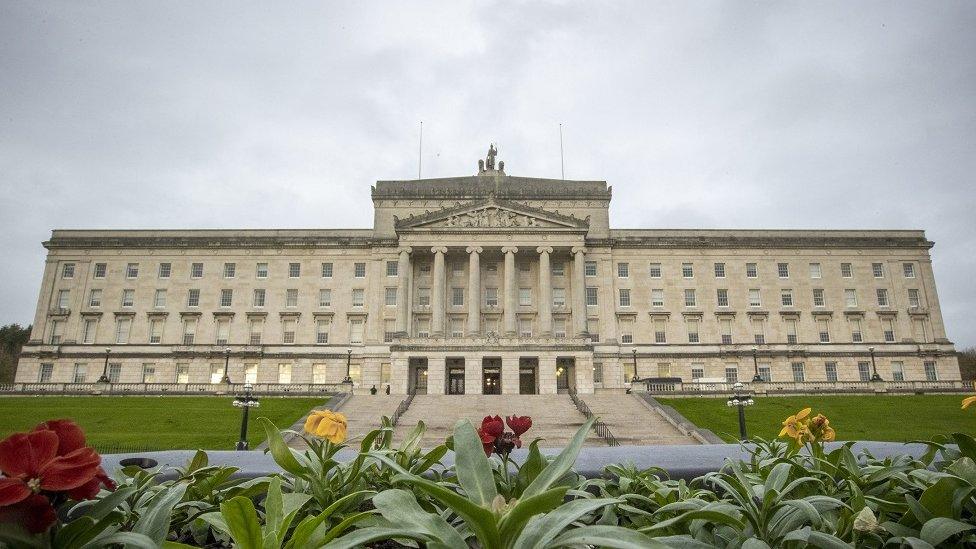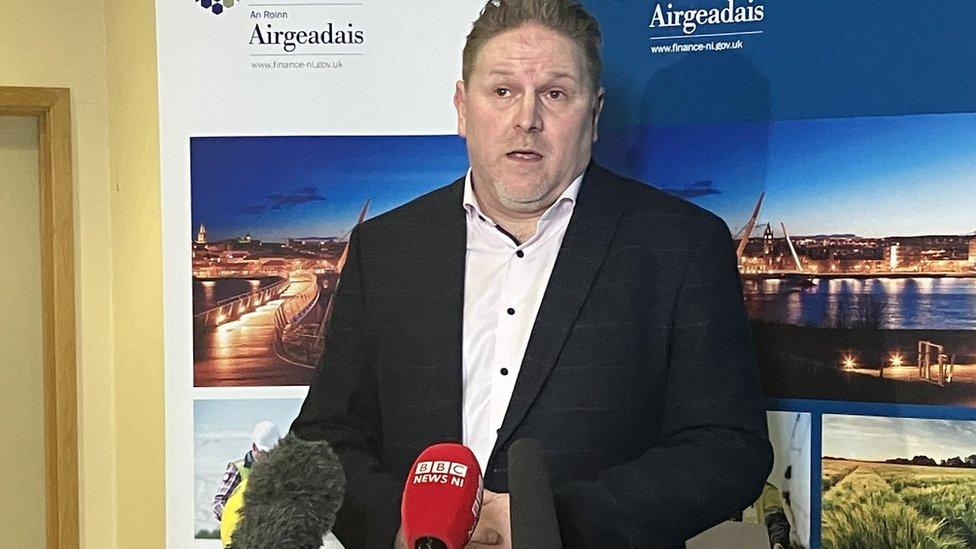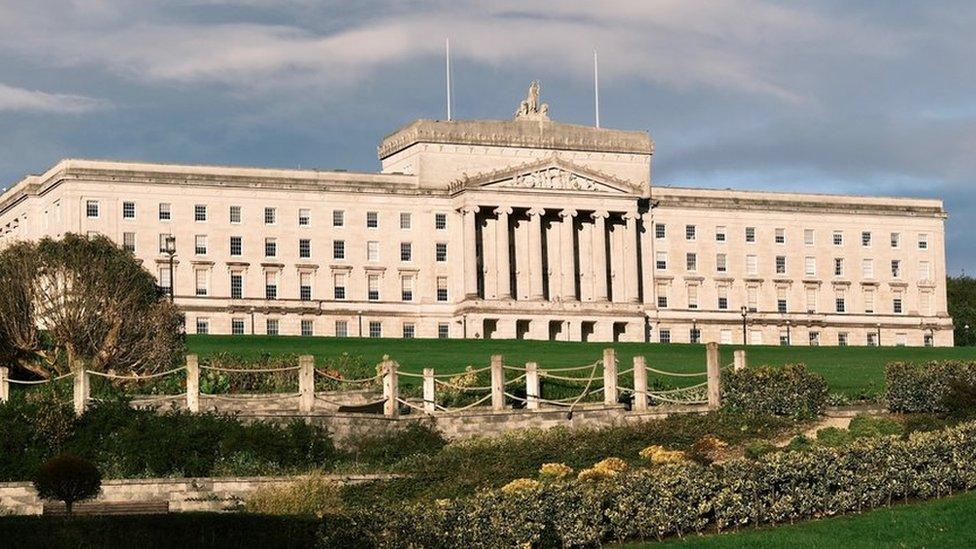Autumn Statement: £75m for Northern Ireland to be used for overspend
- Published
- comments

Stormont has repaid about £17m of its £300m overspend
A total of £75m allocated to Northern Ireland from the Autumn Statement will be used to reduce Stormont's overspend rather than on public services.
A decision on how to use a further £110m will be made early next year.
Stormont departments overspent by almost £300m last year.
In April the Northern Ireland Secretary Chris Heaton-Harris said that any new money generated by UK spending decisions in this financial year should be used to pay down the overspend.
The senior official at Stormont's Department of Finance has also confirmed that that funding for day-to-day spending at Stormont departments will be effectively frozen in cash terms next year at £13.8bn, which would be a cut in real terms.
The Independent Fiscal Council said the overspend in the 2022-23 financial year came about due to the unavoidable impact of inflation and pay pressures being "compounded by weak budget management in the absence of a functioning executive".
Northern Ireland has been without a power-sharing government since February 2022 due to the Democratic Unionist Party's (DUP) boycott over post-Brexit trade rules.

The Barnett formula funding is based on population size
Normally Northern Ireland would receive a population-based share of new public spending in England, money referred to as a Barnett consequential.
In the Commons, DUP MP Sammy Wilson asked Chancellor Jeremy Hunt if any Barnett consequential cash for Northern Ireland following his statement would be frozen and instead used to pay off the overspend.
Mr Hunt did not directly address the point but said the government's priority in terms of funding for Northern Ireland remained the "restoration of a locally accountable and elected executive", and that the Treasury would continue to provide support in every way it could in the meantime.
Speaking on Wednesday, Mr Heaton-Harris said: "Today's Autumn Statement provides welcome support for Northern Ireland people on the cost of living, measures for businesses to promote growth, and exciting plans to foster further innovation."
He added: "It remains the Secretary of State's priority to see the return of locally elected, accountable and effective devolved government, which is the best way for Northern Ireland to be governed."

Neil Gibson, the senior official at Northern Ireland's Department of Finance, has warned that another overspend is looming
Earlier in November, the senior official in Stormont's Department of Finance warned that another overspend is looming this year.
Neil Gibson said it was running at an estimated £450m, based on the assumption that there are no pay rises across public services.
The news on the Autumn Statement comes as the government said that Levelling Up funding which has not been allocated due to Stormont's collapse will be spent in Northern Ireland.
How else will the Autumn Statement affect Northern Ireland?
Any changes to benefits announced in the Autumn Statement will not automatically apply in Northern Ireland as social security is largely devolved.
In practice, Stormont normally passes legislation to stay in line with policy in Great Britain for practical and budgetary reasons.
Stormont's Department for Communities said: "The department will work with the Department for Work and Pensions (DWP) to assess all the changes announced and any consequent budget impact for those applicable in Northern Ireland.
"Northern Ireland generally maintains parity with Great Britain on social security changes. Any break with parity may result in additional public expenditure for Northern Ireland and this would normally require executive agreement."
Major tax changes, such as cuts to income tax or National Insurance, will automatically apply in Northern Ireland.
- Published9 November 2023

- Published22 November 2023
